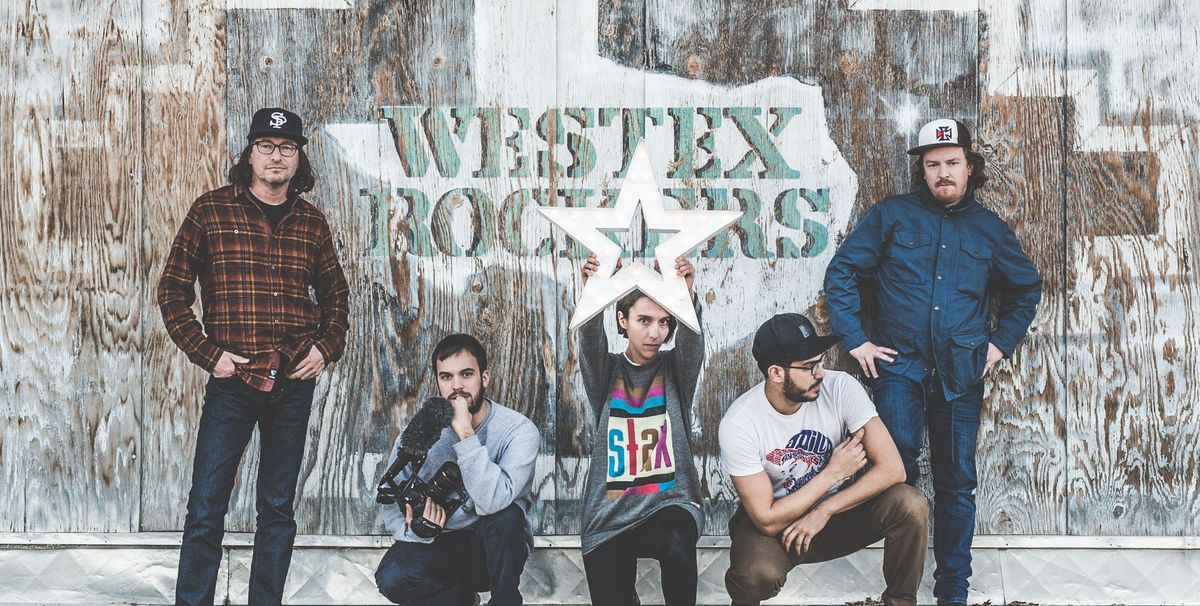Top Gun Shooting Range, Houston, Texas 17 January 2017
I don’t know how I ended up on a shooting range with four guys. I was definitely the only one who was deeply scared. Guns are not at all my thing, but I trusted the team and on some level I understood that if I wanted to learn about Texas, I had to push myself, even in ways that made me uncomfortable.
I was shaking like hell, not out of excitement, just fear. But the firearms instructor was very friendly and passionate about guns, and the RV team (which had grown to include Stephen and Matteo) was very excited. So at least I felt secure. I felt like I was in a movie again, but this time it was an action scene.
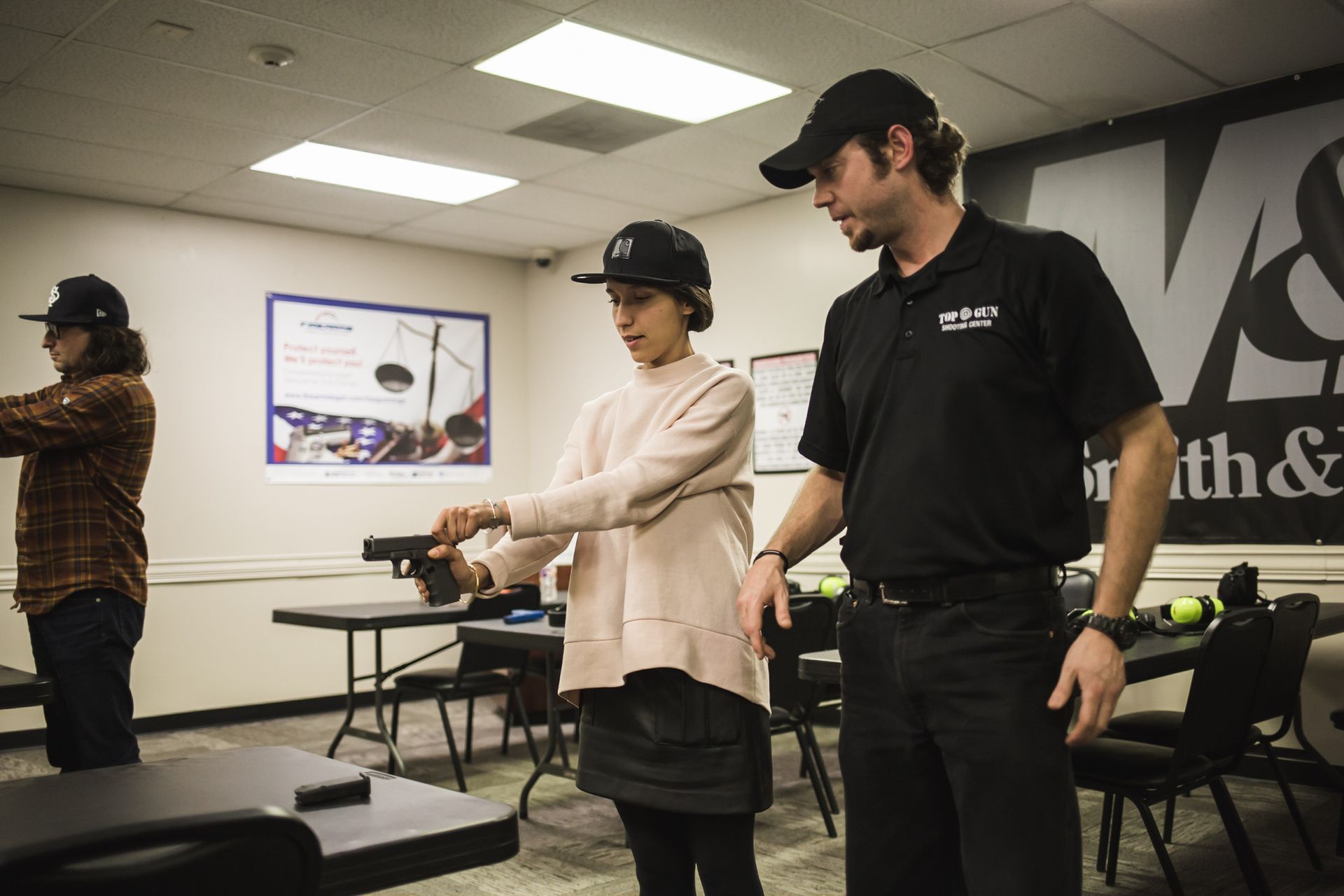
I was, of course, the first to try and shoot a gun. Constantly shaking, I went through all the steps correctly, then I shot the target which was only three meters away. (I know how ridiculous this situation will seem to a Texan.) I was literally thrown back by the sheer force of the trigger. Even the noise of it scared me; every time someone took a shot, I jumped. But I got through my five bullets and was happy to be done. In the end, I found myself crying, it was all too much: the adrenaline, the fear, the connection to violence, the force, the significance of the object itself.
My conversation with the instructor was very interesting. To me, guns were all about fear, but to him, it represented his cultural heritage. I was once again running into this idea of identity. I began to understand the Lone Star of Texas. The star became a unique symbol of Texan pride, a precious symbol that needed to be preserved and respected.
This journey was becoming a lesson in open-mindedness, and unexpectedly, I was beginning to change my point of view. Many of the stereotypes I have about the US are being challenged. I’m not saying that I fully accepted or agree with what I am seeing and experiencing, but I am now more sympathetic.
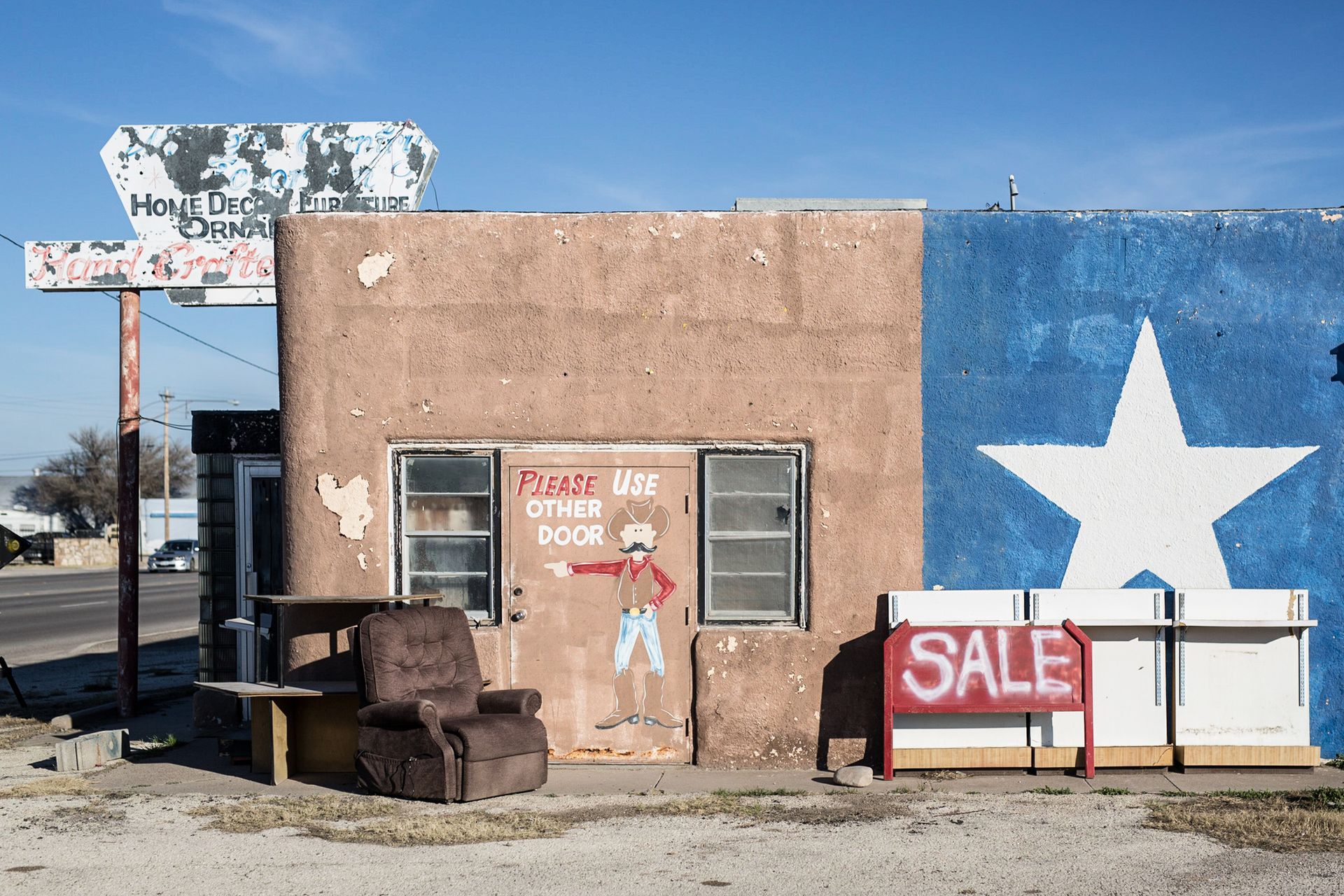
Fort Stockton to Fort Davis, Texas, 19 January 2017
We continued westwards through Texas: small roads, dry landscapes, spiky desert plants… the Wild Wild West actually meant something to us now.
We stopped at Fort Stockton, not really knowing where we where. It was a tiny town with only one main street. We happened upon the local sheriff who was willing to talk to us. He was physically very striking, he looked like an old wise man. I was a bit stressed at first, but once we began to talk, I realised that he was such a kind person. He was a tough guy who had worked as a US Border Patrol officer and the sheriff of his small town. The only thing he cared about was the well being of his citizens.
At that precise moment, I realised that most of the people I had met were good people who were stuck in difficult realities. As foreigners, we think about the US as a strong country where freedom is the motto. But if you have the chance to travel deeper into the country, you see the different social layers and you understand that it’s just like everywhere else. All societies in this new capitalistic world have people who are “forgotten and left behind”. And the sheriff I met in Fort Stockton was trying his best to help those people from his community.
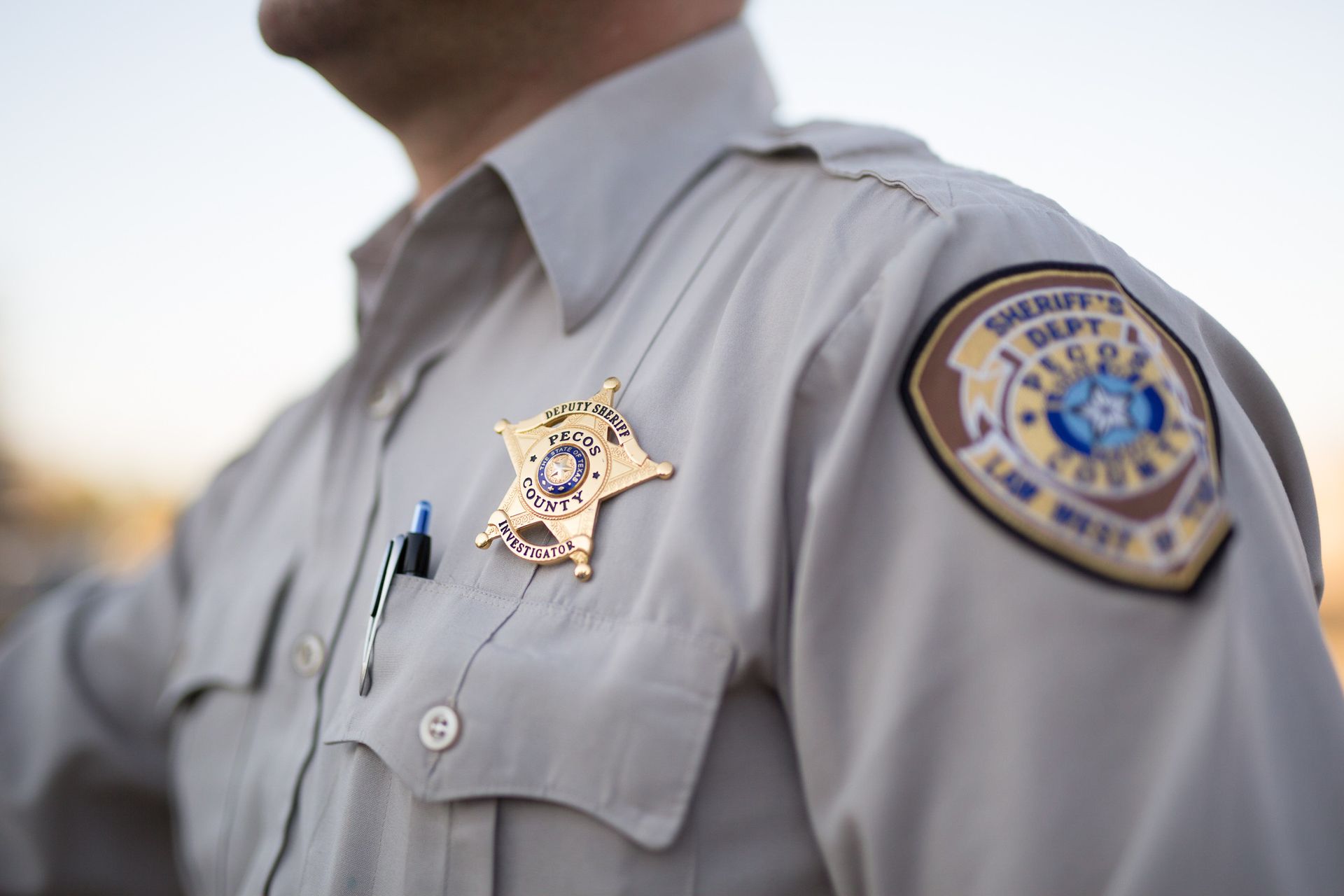
When he talked about the symbolism of the star—which is of course also the symbol of the sheriff’s office in US—all he had in mind was the pride he felt in protecting his people. He reflected authority at its best, an honourable man in charge, one that you are not afraid of but instead know will defend your interests.
He said something about the results of the presidential elections that I will never forget: “We are used to being the people left behind. I couldn’t believe we won, for the first time, we won!” I understood him; for once in his life, he felt as though the voices of his community meant something.
He said he wasn’t against diversity, he had travel a lot and been to Morocco and Spain. He was very aware of international geo-political realities, like the refugee crisis, the different wars taking place in the Middle East. But first he had to solve the issues in his hometown. “Before global interests, local needs come first.”
We spent that night at the McDonald Observatory, literally under the Milky Way, talking to scientists and engineers throughout the night. We learned how much of history was made by people from all corners of the world, and how each brought their own major discoveries. For scientists, a star is simply a time machine that helps humanity understand where we come from. And for me, Out Among The Stars is an ongoing project that looks to examine and unpack the ways in which our societies function.
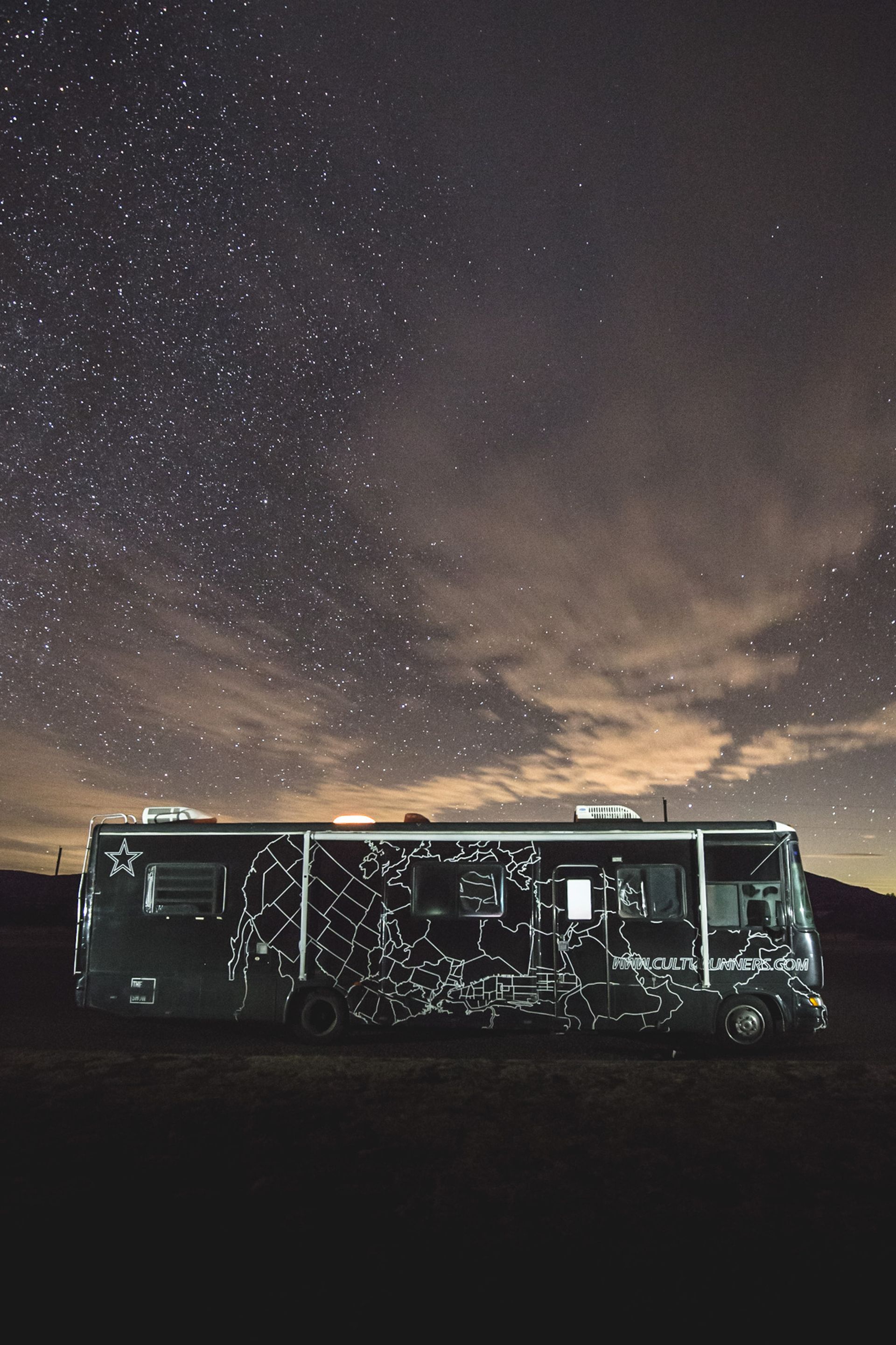
Trump inauguration, El Paso, Texas, 20 January 2017
I woke up sick that day. We drove to El Paso and on the way we quickly stopped at a gas station restaurant to watch Donald Trump’s inauguration. There were not many people at the restaurant, just the bar tender, a couple and a lone man at a table.
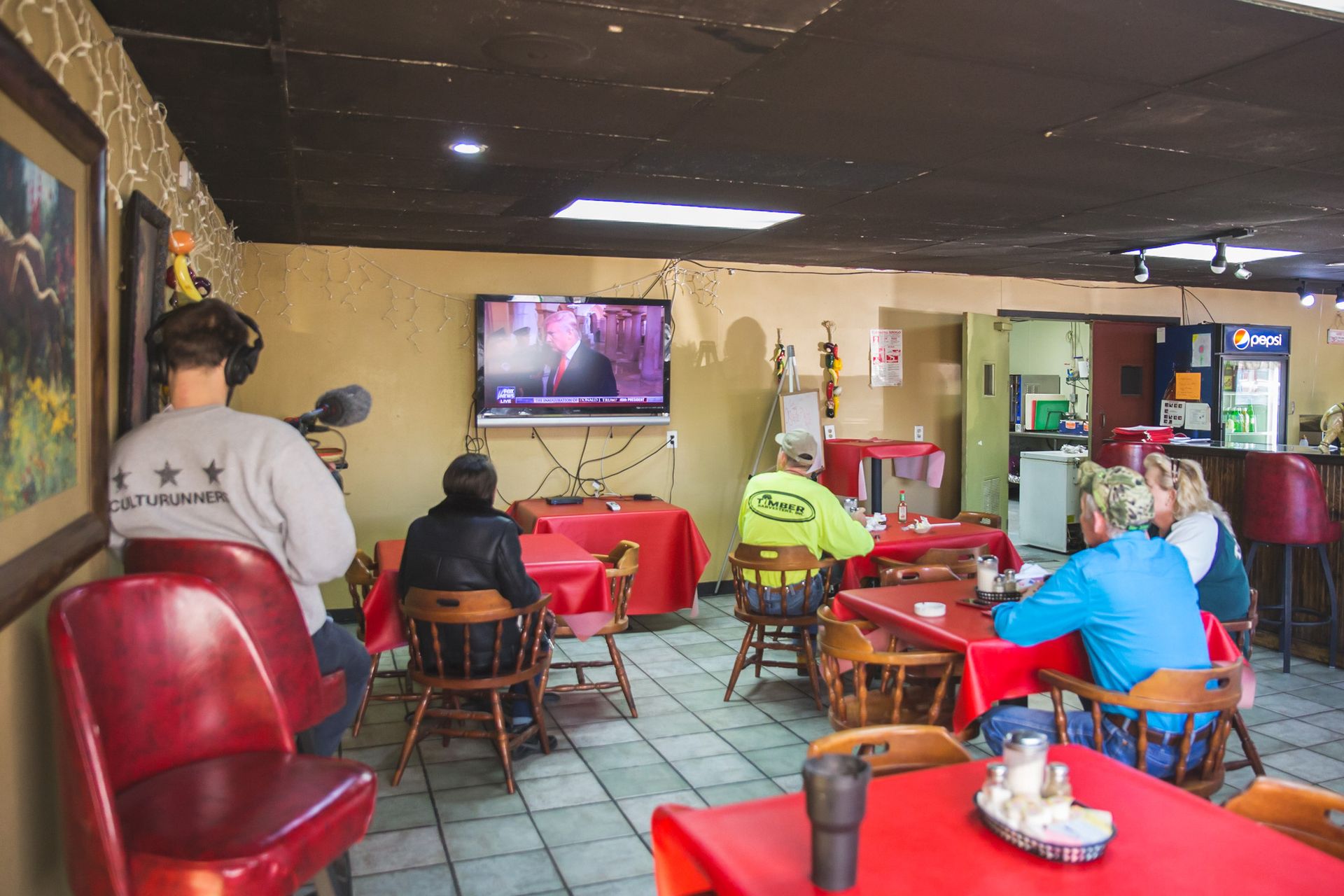
Ironically, I was sincerely sick and had to go vomit. But I was able to listen to the new president’s speech. It sounded surreal to me but on the other hand, I could see how it was efficient; he uses plain language to simplify complex political issues. Most of what he said echoed what I had heard during my journey: the need for construction, more roads and bridges, making America great again… everything became clear to me.
Up next: meeting Miley Cyrus at the Women's March in Los Angeles and returning to an uncertain Europe…


